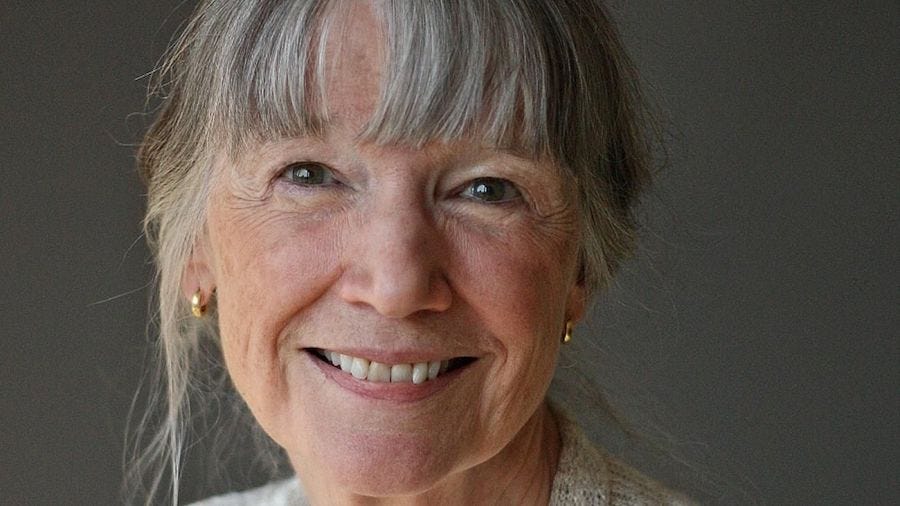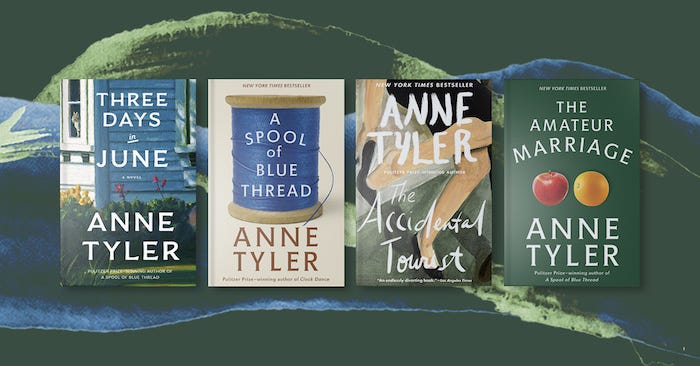Why is Anne Tyler so overexposed at the New York Times?
America's newspaper of record isn't balancing its responsibilities to authors, readers, and the truth

What do the media owe elderly stars who have lost their top notes? This question has probably vexed every editor of a newspaper, magazine, or website at some point.
It’s one I wrestled with often when I edited the book review section of a large U.S. newspaper. I had only two pages a week for reviews, and I didn’t want to squander them on authors who were overexposed or unworthy of coverage.
How to apportion that space involved moral as well as journalistic dilemmas. It’s cruel to launch gratuitous attacks on old warhorses who because of age or illness can no longer deliver the goods. But the media duck their responsibility to tell the truth when they pretend that stars are giving their fans as much as ever despite painful evidence to the contrary.
Is it agism in reverse to overpraise older authors?
When it comes to books, you could also argue that it’s agism in reverse to pull punches to protect older authors when some are doing outstanding work in their 80s and even 90s. Writers aren’t athletes whose ability to perform requires physical skills that decline with age.
And the media have ways to avoid either needless slams or overpraising subpar work. They can give a book a shorter review than they might have during an author’s glory days, or none at all. If a book seems to demand coverage, they can do a news story on it, or a profile of or an interview with the author that doesn’t deal with the literary merits of the work.
So it’s hard to fathom the overkill for 83-year-old Anne Tyler’s underwhelming new Three Days in June at the New York Times.
Her 25th novel finds her on well-trod ground: She’s back in middle-class Baltimore, where family secrets tumble out when a divorced couple reconnects for the wedding of their only child. Some critics have raved about the novel, but none is saying that it’s her best, and the media have largely given it space that reflects its modest aims.
Ten times more space in the Times than the Wall Street Journal
Only the New York Times has gone overboard with its response. Among U.S. media that cover books, a few numbers tell the story. The Christian Science Monitor gave the novel 722 words; the Wall Street Journal, 336 words; and the Los Angeles Times, 60 words. The New Yorker hasn’t reviewed it and dispatched the last Tyler novel it seems to have covered, A Spool of Blue Thread, with about 100 words in its Briefly Noted section.
Yet the New York Times spent more words on Three Days in June than all of those others put together, and nearly 10 times as much as the Wall Street Journal. The Times heralded the book with a a 71-word prepublication plug; 1,908-word profile of Tyler; and a full page in the New York Times Book Review that paired a 770-word review with a roughly 100-word sidebar that looked back on the newspaper’s review of Tyler’s first novel, If Morning Ever Comes, in 1964. That doesn’t include appearances of the novel on the New York Times bestseller list, where it ranks No. 13 this week. All of that went for a book that, with just 156 pages, is unusually short for Tyler.
That overexposure might be easier to justify if Three Days in June were a better or more newsworthy novel: if Tyler had veered into fresh literary territory, let’s say, or had said that this would be her last book, which might have called for a substantial valedictory. But she’s done neither and has said she plans to keep writing.
A decade ago, the acerbic New York Times critic Michiko Kakutani lamented the decline evident even then in Tyler’s books, noting that they had begun to “stumble into predictability and cliché.” Kakutani wrote of A Spool of Blue Thread:
“It recycles virtually every theme and major plot point she has used in the past and does so in the most perfunctory manner imaginable.”
You could say something similar about Three Days in June. Dwight Garner, a Times staff critic, wrote in the splashy coverage of the book in the NYTBR:
“This is not Tyler’s best novel, nor is it her worst, though it’s closer to the bottom than to the top.”
An underdeveloped subplot
Three Days in June has a more startling lapse and one that may be unprecedented for Tyler: She appears to set up a subplot she inexplicably drops.
At her daughter’s wedding rehearsal, the 61-year-old narrator, Gail Baines, learns that her future son-in-law’s best man is an older man Gail was dating but dropped when she met her former husband, Max. How she didn’t know this defies belief. You expect the encounter to lead to lead to high tension, given that the book is essentially a glorified romance novel that involves the questions: Did Gail make a mistake in marrying the husband she divorced? Or perhaps in divorcing hm?
But Tyler gives the meeting between Gail and the ex-boyfriend the flimsiest treatment that adds little to the story. It’s as though she’s written the Cliffs Notes for the novel, or sketches that make you wonder: Did she plan to have but drop an entire subplot involving the boyfriend? If so why?
Tyler has also acquired distracting quirks that either didn’t appear or were less obvious in earlier books, which have won honors including a Pulitzer Prize and a shortlisting for the Man Book International award. One is that her characters speak frequently in colons and semicolons, which appear in lines of dialogue on page after page. That punctuation might befit a writer of highly mannered novels, like Henry James, but Tyler is a writer of plainer-than-plain English. There are also snatches of expositional dialogue, a crutch writing teachers regularly warn students to avoid. Tyler acquired a new editor after the death in 2017 of the much-esteemed Judith Jones at Knopf, and you wonder if some of this results from that switch.
You may love Tyler’s work and believe she deserves every column-inch she gets in the Times. If so, consider this: All media outlets have limited space for book coverage, and one author’s gain is another’s loss. It’s a zero-sum game.
The Times could have run five short reviews of other authors’ books on the full page the NYTBR gave Tyler and at least that many more in the nearly 2,000 words it gave to a profile of her. So what explains the hype?
You may suspect the Times’ editors of playing favorites, pandering to popular tastes, or just trying to save money. It’s easier on a freelance budget to run an article by a staff critic at no cost than to pay others to review a half dozen perhaps worthier books.
But you can also see the overexposure of Tyler as evidence that another female author was right when I interviewed about her latest novel her for my old newspaper. A Pulitzer winner nearly as famous as Tyler, she summed up in four words a driving principle behind literary success in America. Those words are: “Them that has, gets.”
You might also like my Substack post on why you can’t trust the year’s-10-best-books list in the New York Times in The Media Circus section of Jansplaining, which focuses on media criticism, especially as it relates to the intersection of books and journalism.
Notes
https://www.nytimes.com/2025/01/30/books/new-books-february.html
https://www.nytimes.com/2025/02/10/books/three-days-in-june-anne-tyler.html
https://www.nytimes.com/2025/02/03/books/review/anne-tyler-three-days-in-june.html
https://www.nytimes.com/books/best-sellers/hardcover-fiction/
https://www.wsj.com/arts-culture/books/three-days-in-june-review-wedding-bell-blues-bbd8ab2f
https://www.latimes.com/opinion/story/2025-02-01/february-book-reviews-fiction-nonfiction
https://www.newyorker.com/magazine/2015/03/23/briefly-noted-a-spool-of-blue-thread
https://www.nytimes.com/2015/02/06/books/anne-tylers-20th-novel-a-spool-of-blue-thread.html





All good ideas here and I'll add another possibility. Literary stardom itself is waning; I think Sally Rooney is one of the last and probably the only one in her cohort in the anglo-world. From Gen X to older, each generation had this phenomenon of literary stardom that carried huge amount of clout with traditional media. Which novelists are getting on magazine covers today, and covers of weekend supplements? So this over-coverage of certain former stars could be happening because some of the book people at the Times really really miss the literary stardom era? I like Elizabeth Strout and could read anything she writes, but I think she's also one of the people who will get the attention no matter what, though I think the presence of her work in the movies and on TV adds to this enormously (Tyler has no cinematic footprint, as far as I can see). Another author that I like, Zadie Smith, gets a lot of smart media whenever she publishes something, though Fraud was the first book of hers for which I thought, this didn't warrant all those interviews and in fact she's so much more interesting in interviews than the book itself.
The flip side of your argument is ageism in publishing.
I see lots of contests for writers under 30, not so many for those over 60.